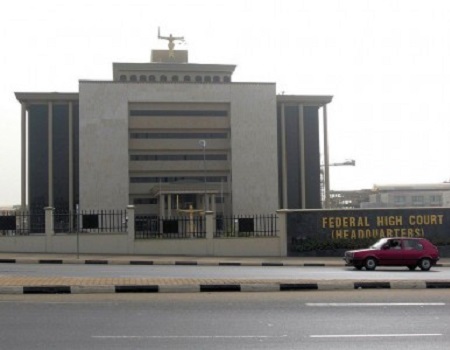Dopkesi, who is the owner of African Independent Television (AIT) and Ray Power Radio, is being prosecuted along with his company for allegedly receiving the sum of N2.1 billion from the Office of the National Security Adviser (ONSA) in 2015.
Delivering ruling in Dokpesi’s no case submission, Justice John Tsoho held that the defendants had a case to answer in respect of the money laundering and procurement fraud charges.
ALSO READ: Fela Durotoye unveils Khadija Abdullahi-iya as running mate
Relying on the judgment of the Supreme Court in a similar case involving a former spokesman of the Peoples Democratic Party (PDP), Chief Olisa Metuh, Justice Tsoho ruled that the prosecution had established a prima facie case warranting the defendants to defend themselves.
According to the Judge, “I am guided by the decision of the Supreme Court’s decision in Metuh Vs FRN and hold that a prima facie case has been made out against the defendants.
“This is not a stage to evaluate the evidence of the prosecution. The no case submission filed by the defendants on June 19, 2018 is struck out. The defendants are hereby invited to explain their own side of the story”, Justice Tsoho held.
The Economic and Financial Crimes Commission (EFCC), prosecuting Dokpesi and his company on behalf of the federal government, accused them of fraudulently receiving the sum of N2.1 billion from the ONSA between January and March 2015.
The defendants had, however, through their lead counsel, Chief Kanu Agabi (SAN), filed their no-case submission after the prosecution called 14 witnesses, urging the court to dismiss the case on the grounds that the essential ingredients of the alleged offences were not proved.
The defendants, represented by Chief Mike Ozekhome (SAN) at the Wednesday proceedings had argued that the prosecution failed to lead any evidence linking them to the alleged offences.
But the prosecuting counsel, Mr. Oluwaleke Atolagbe, had opposed the application, urging the court to dismiss it and call on the defendants to enter their defence.
Ruling on Wednesday, the judge upheld Atolagbe’s submissions and held that at the stage of no-case submission, the court was not expected to determine whether or not the guilt of the defendants had been proved, but only determine if any admissible evidence, no matter slight had been led against the defendants.
Justice Tsoho however described as “instructive” the analysis of the case made by the prosecuting counsel, who contended in his written submission that Dokpesi and his company reasonably ought to know that the sum of N2.1bn was part of the proceeds of the former NSA, Col Sambo Mohammed Dasuki’s illegal activities.
He said, “In the instant case, the applicants knew they had no contract with the Office of the National Security Adviser, but received the aggregate sum of N2,120,000,000 from the office for doing no work at all.
“This money, the applicants are aware, does not belong to the then NSA, Col. Mohammed Sambo Dasuki (rtd), as it was not even paid from the personal account but from the account of the NSA.
“Knowing that the said money must have been received as part of the unlawful acts of the said NSA, the 1st defendant (Dokpesi) sought to wriggle his way out through the explanation he proffered in his statements.
“Certainly, the applicants ought reasonably to know that such money formed part of the unlawful activity of the then NSA.”
The judge maintained that the court was only concerned with whether “the proof of evidence discloses an offence or offences or whether the accused person is linked to the offence to require his answer to his involvement therein.
“The court is not expected at that state to make an opinion on the evidence”, he said and added that, “At the stage of no case submission, the credibility of the prosecution witnesses should not be considered.
“It is not a stage the court can believe or disbelieve the witness,” he also said and described as “ambitious” the interpretation given by defence lawyer, Agabi, to the provisions of section 303(3)(a) of Administration of Criminal Justice Act (ACJA) to the effect that with the advent of the new law, the prosecution was required to prove the guilt of the defendants and not just a prima facie case.
The judge noted that to believe Agabi’s submission would be incongruous decision to settled principles of no-case submission.
The court then slated February 20 and 21, next year for Dokpesi and his company to open their defence.






